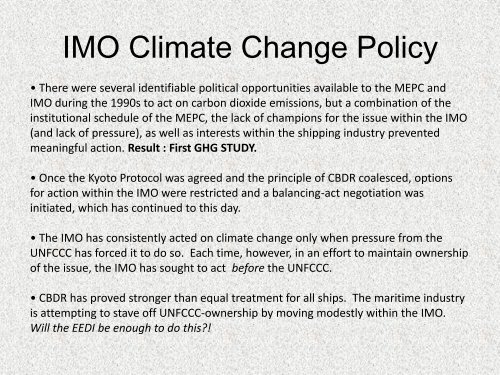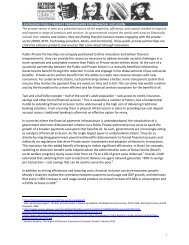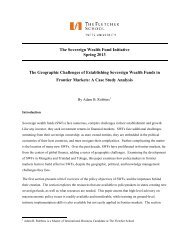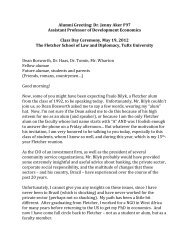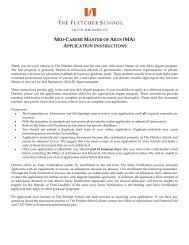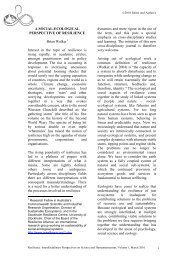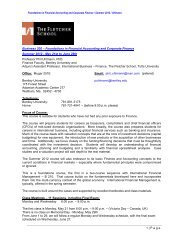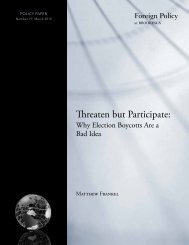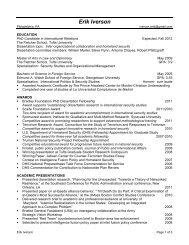Presentation - Fletcher School of Law and Diplomacy
Presentation - Fletcher School of Law and Diplomacy
Presentation - Fletcher School of Law and Diplomacy
You also want an ePaper? Increase the reach of your titles
YUMPU automatically turns print PDFs into web optimized ePapers that Google loves.
IMO Climate Change Policy<br />
• There were several identifiable political opportunities available to the MEPC <strong>and</strong><br />
IMO during the 1990s to act on carbon dioxide emissions, but a combination <strong>of</strong> the<br />
institutional schedule <strong>of</strong> the MEPC, the lack <strong>of</strong> champions for the issue within the IMO<br />
(<strong>and</strong> lack <strong>of</strong> pressure), as well as interests within the shipping industry prevented<br />
meaningful action. Result : First GHG STUDY.<br />
• Once the Kyoto Protocol was agreed <strong>and</strong> the principle <strong>of</strong> CBDR coalesced, options<br />
for action within the IMO were restricted <strong>and</strong> a balancing-act negotiation was<br />
initiated, which has continued to this day.<br />
• The IMO has consistently acted on climate change only when pressure from the<br />
UNFCCC has forced it to do so. Each time, however, in an effort to maintain ownership<br />
<strong>of</strong> the issue, the IMO has sought to act before the UNFCCC.<br />
• CBDR has proved stronger than equal treatment for all ships. The maritime industry<br />
is attempting to stave <strong>of</strong>f UNFCCC-ownership by moving modestly within the IMO.<br />
Will the EEDI be enough to do this!


